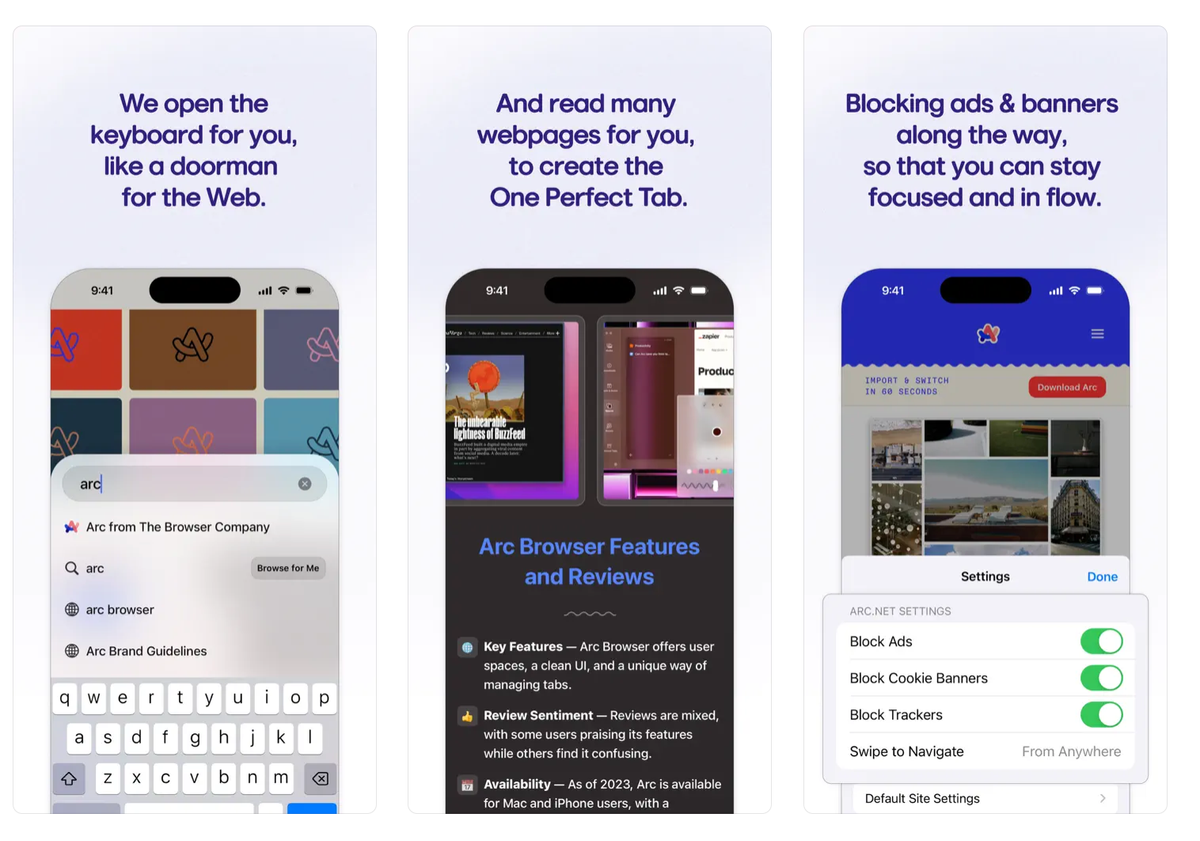Unchoking the Web

While I'm a fan of what The Browser Company is trying to do with the Arc Search mobile app,1 Casey is clearly not. And actually, there seem to be a number of folks who aren't. And as far as I can tell, it basically boils down to this:
But as unsatisfying as the status quo may be, it still represents a marked improvement on the world predicted by Arc Search. The Google of today is organized around the principle that it is necessary and even enjoyable to visit websites. The search engines of tomorrow are premised on the idea that it would be far better and more enjoyable not to.
Here's where I take issue: it is absolutely not enjoyable to visit many websites of today. Especially content-focused websites which have become an absolute cesspool of obnoxious ads which at best distract from and often outright block the content. And that's if you can get the pages to load, which is a chore in and of itself because of all the scripts these pages are running to be able to glean more insight so as to get more information to serve up said shitty ads. It's a fucking nightmare.
It has been bad for years and it has only been getting worse. And guess what? It will continue to get worse. And so, in my view, it's both necessary and inevitable for something to come clean this mess up. Arc Search is one idea. Perplexity is another. Google has their own, of course.2 There will be many more.
This is clearly a better user experience for those seeking information about the king. Rather than click on one or more stories, navigate various ads and pop-up windows, and scan for information, Arc Search and its peers grab the most valuable bits and serve them to you without interruption.
To deliver that user experience, though, Arc Search relied on stories from NBC, CNN, USA Today, and others. Those stories were written by journalists who are paid largely through the advertising revenue on the web pages that readers might have otherwise visited. A huge number of the journalism jobs that still remain depend on the pipeline that delivers search queries to web pages.
Is this bad news for publishers? In the short-term, undoubtedly. But they're already dealing with bad news left and right these days even before the ramifications of the above really come home to roost.
I may not go so far as to say the publishers brought this on themselves by giving in to these awful user experiences – I mean, what else were they going to do, say "no" to trying to make money as CPMs decline? But also, I mean just look at these goddamn sites. If you dare.
I have faith that content – including journalism – will uh, find a way. In many respects, it already has been, see: The New York Times digital subscription business and the rise of newsletters such as Platformer. If, in Casey's own words, the "better user experience" becomes the norm and it's even less about "ten blue links",3 it's certainly going to be hard on incumbents who built their businesses on that old model. But models change. And it feels like it's time for this one to evolve.
This isn't about the web dying, it's about unchoking it.
1 Nothing to disclose here, by the way. I've known founder Josh Miller for a long time and was involved with his first company, Branch, through CrunchFund back in the day. But here, I'm just a fan of the Arc browser.
2 Here's where I will disclose that I'm a venture partner at a firm whose sole LP is said search giant. Obviously, these opinions are my own.
3 A search results page which, hilarious, returns a bunch of SEO-bait, rather than anything really informative.

